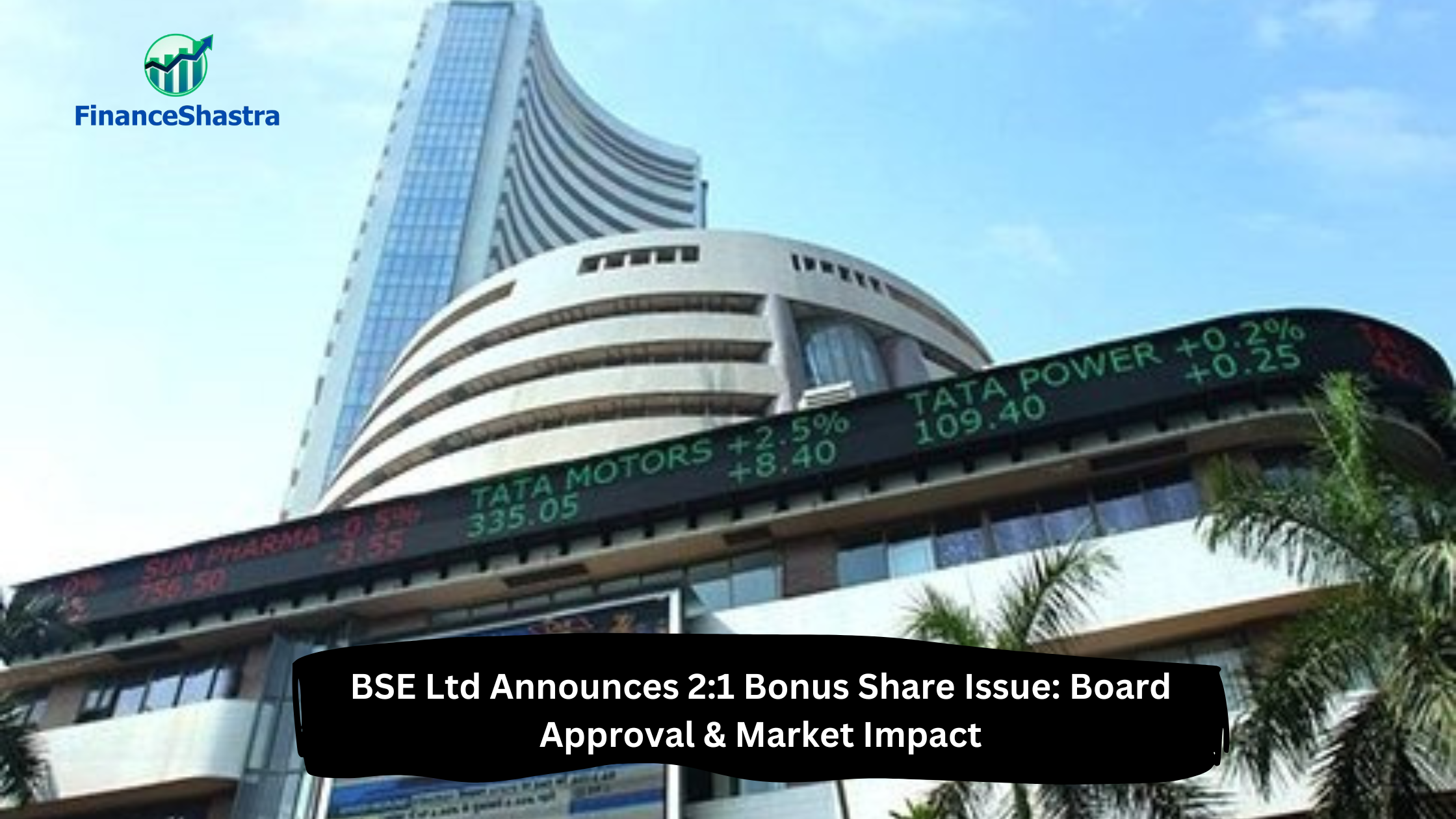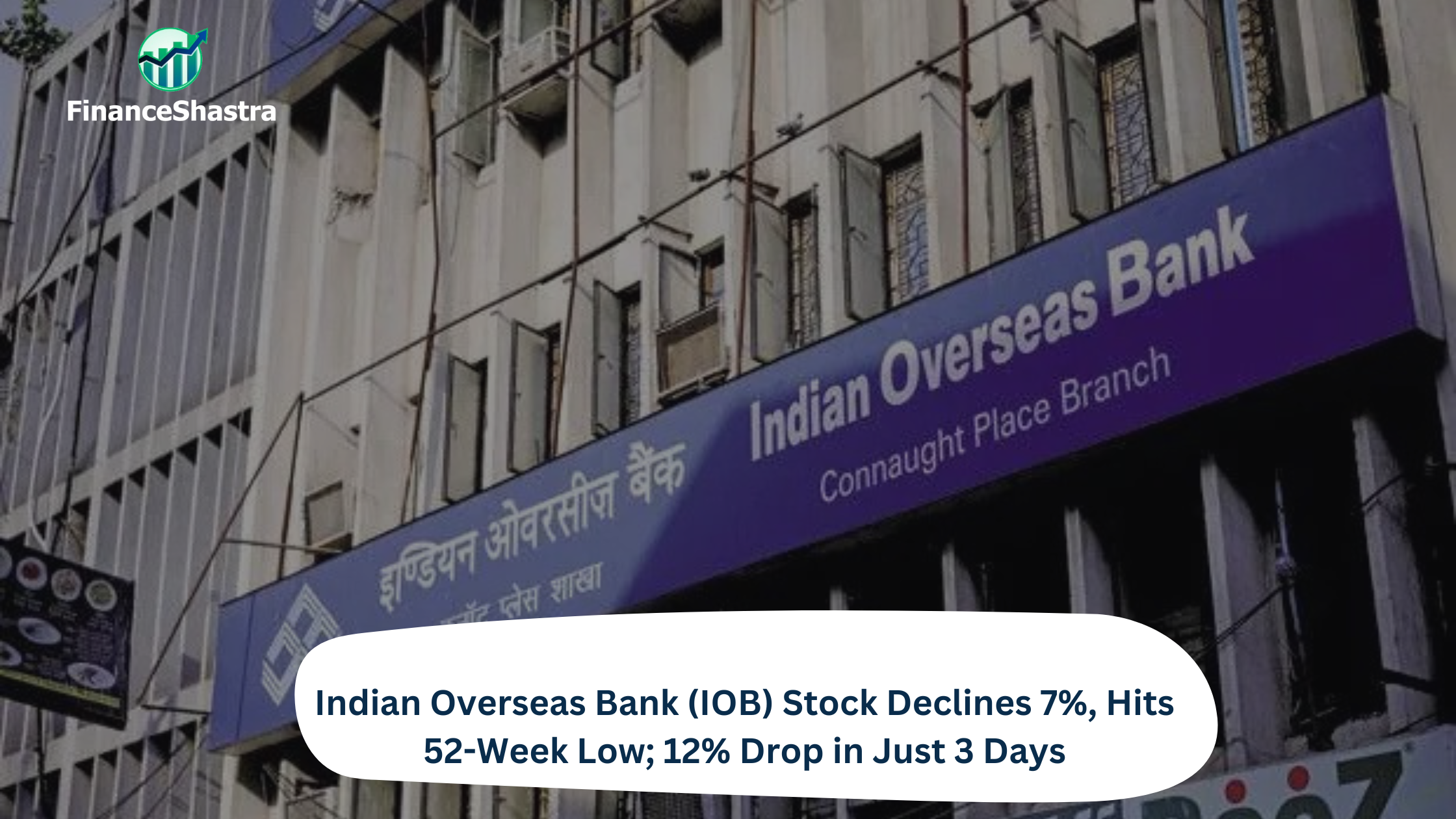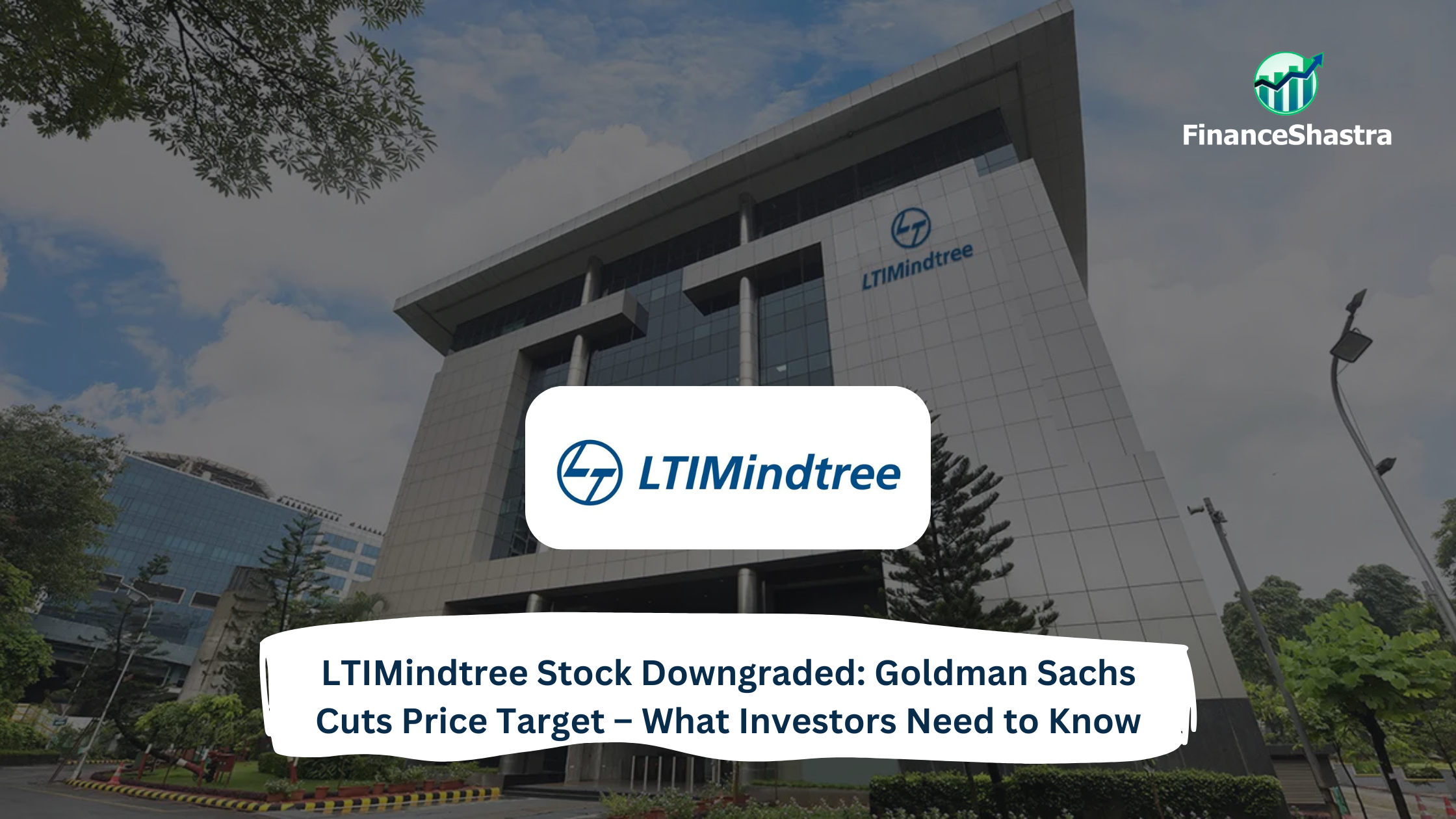BSE Ltd Announces 2:1 Bonus Share Issue: Board Approval & Market Impact
Business and Industry Overview:
BSE Ltd., or the Bombay Stock Exchange, is one of the oldest stock exchanges in India. It was founded in 1875 by Premchand Roychand. The exchange is located on Dalal Street in Mumbai. It is Asia’s oldest stock exchange and the 6th largest in the world. As of May 2024, BSE’s market value is over US$5 trillion. BSE provides a platform for trading stocks, bonds, mutual funds, and derivatives. It allows companies to raise money by selling shares to the public. At the same time, it offers people opportunities to invest and grow their wealth. The trading system is electronic, making it safe and transparent. BSE has introduced many new services over time. In 2016, it launched India INX, India’s first international exchange. In 2018, it became the first exchange in India to offer commodity trading in gold and silver. BSE also provides services like market data, clearing, settlement, and risk management. BSE is a part of global efforts to promote sustainable investment. In 2012, it joined the United Nations Sustainable Stock Exchange initiative. Despite challenges, like a bomb explosion in its building during the 1993 Bombay bombings, BSE has continued to grow. In 2007, it was demutualized and corporatized to improve management. It was listed on the National Stock Exchange in 2017. BSE is an important part of India’s economy. It helps companies raise money and gives investors a place to trade. BSE’s main stock market index, the SENSEX, tracks the performance of 30 leading companies. BSE continues to innovate and play a key role in India’s financial growth.
India’s stock market is a key part of the country’s economy. It allows people to buy and sell shares of companies. These shares represent a small ownership in the company. When people buy shares, they are investing their money in the company, hoping to make a profit as the company grows. There are two main stock exchanges in India: the Bombay Stock Exchange (BSE) and the National Stock Exchange (NSE). The BSE is the oldest stock exchange in India, established in 1875. The NSE started in 1992 and is now the largest exchange in India by trading volume. The stock market in India is regulated by the Securities and Exchange Board of India (SEBI). SEBI’s job is to ensure the market is fair. It makes sure that all investors, big and small, are treated equally. SEBI also ensures that companies follow the rules when listing shares on the stock exchanges. There are two main indexes that track the performance of the stock market in India: Sensex and Nifty. Sensex is based on 30 of the largest companies on the BSE. Nifty is based on 50 companies listed on the NSE. These indexes help investors see how the stock market is performing. Trading in the stock market is done electronically. People place buy or sell orders on a computer system. The system matches buyers and sellers automatically. This makes trading faster and easier. All trades are settled the next day in India’s stock market. India’s stock market also allows foreign investors to invest. Foreign investors can buy shares in Indian companies. They can do this in two ways: Foreign Direct Investment (FDI) and Foreign Portfolio Investment (FPI). FDI is when a foreign investor buys a large stake in a company, while FPI is when they buy shares without controlling the company. There are limits on how much foreign money can go into certain industries. Retail investors, both in India and abroad, can also invest in Indian stocks through Exchange-Traded Funds (ETFs) and American Depository Receipts (ADRs). These are easier ways to invest in Indian companies without directly buying shares on the stock exchanges. Overall, India’s stock market is growing rapidly. More companies are being listed, and more people are investing. It helps businesses raise money and offers people a chance to invest in India’s growth. The market is becoming more important in the world. BSE Limited is one of the biggest stock exchanges in India. It is the oldest stock exchange, starting in 1875. While the National Stock Exchange (NSE) is bigger in terms of trading volume, BSE is still very important because it has the most companies listed. As of January 2024, BSE had 5,315 companies listed, which is more than twice the number on the NSE. BSE stays competitive by offering different types of trading, like stocks, commodities, and currencies. It also expanded globally with India INX, which helps it attract foreign investors. This makes BSE a player in the international market too. BSE is also known for being fair and transparent. It follows strict rules set by SEBI, which protects investors and ensures trust in the market. Even though NSE has more trades happening every day, BSE’s long history, more companies, and focus on fair trading help it remain competitive. In simple terms, BSE stays strong by offering more options for investors, being trustworthy, and having a long history that makes it important in the stock market.
Latest Stock News:
BSE Ltd’s stock has gone up a lot recently. On March 28, 2025, the price of the stock went up 12% to ₹5,225. This happened for a few reasons. First, the Securities and Exchange Board of India (SEBI) released a consultation paper. This paper suggested that all stock exchanges should limit the expiry days for equity derivative contracts to either Tuesday or Thursday. This is important because expiry days are when these contracts end, and it can affect how much people trade. This idea was good for BSE because BSE already has Tuesday as its expiry day. NSE, its competitor, was planning to change its expiry day to Monday. But now, SEBI’s proposal could stop NSE from doing that. This change helps BSE.
In the past two days, BSE’s stock price has gone up by 17%. This is because on March 26, 2025, BSE said it would think about giving bonus shares on March 30, 2025. Bonus shares mean that current shareholders will get more shares for free. BSE had given bonus shares in the past at a 2:1 ratio. This means for every one share someone owned, they would get two extra shares.
BSE’s stock has come back strongly after hitting a low of ₹3,682 on March 11, 2025. It has gone up by 42% since then. Earlier in the year, on January 20, 2025, the stock reached a high of ₹6,133.40. Right now, the price is ₹5,204.45, which is much higher than before.
SEBI’s paper came out when NSE was planning to change its expiry day. This could have affected trading volumes. But now that SEBI wants to keep the expiry days for both BSE and NSE stable, it is good for BSE. BSE will stick with its Tuesday expiry day, while NSE may keep its Thursday expiry day.
Experts believe that this change will help BSE grow. The new rule will make BSE’s market share in derivative trading stay steady. Because the expiry days for BSE and NSE will be spaced out, BSE will continue to grow in the future.
Overall, the news is positive for BSE. It is likely to keep growing, but there may still be some concerns about future rules. But for now, BSE is on a strong path to success.
Potentials:
BSE Ltd. has big plans to grow. One plan is to give bonus shares to its investors. This will make shareholders feel happy and keep them interested in the company. BSE is also focusing on improving its options trading market. This is an important part of its business, as it helps BSE earn a lot of money. However, BSE is facing challenges. The National Stock Exchange (NSE) is changing its expiry day for options contracts. Instead of Thursday, it will now be on Monday. This change could hurt BSE’s business. BSE needs to find ways to stay strong in this competitive market. There are also legal problems. A court has ordered an investigation into some decisions made by past BSE officials. This issue could harm the company’s reputation. Also, there are worries about new rules that may affect BSE’s operations. Despite these challenges, BSE is not giving up. It is working hard to improve its services and keep growing. The company is making plans to face the difficulties ahead. By doing this, BSE hopes to remain strong in the future.
Analyst Insights:
- Market capitalisation: ₹ 75,043 Cr.
- Current Price: ₹ 39.0
- 52-Week High/Low: ₹ 75.6 / 38.8
- Stock P/E: 24.3
- Dividend Yield: 0.00%
- Return on Capital Employed (ROCE): 5.41%
- Return on Equity (ROE): 9.98%
BSE Ltd. is one of the oldest stock exchanges in Asia, and it has been around for over 140 years. It is a strong and trusted company. BSE does not have debt, which is good because it doesn’t owe money. This makes it safer for investors. The company is growing well. Its profit has been increasing a lot. In the last quarter, BSE made more money than before. This shows it is becoming more successful. The company also gives back some of its profits to shareholders. This is called a dividend, and BSE’s dividend payout is about 57%, which is healthy. BSE is very fast. It can complete trades in just 6 microseconds, making it one of the fastest exchanges in the world. This speed helps BSE stay ahead of others. It also offers many trading options, like stocks, bonds, and derivatives. This makes BSE an important player in the market. Even though the price of BSE’s stock is high compared to its earnings, the company’s strong position in the market makes it a good investment for the long term. Overall, BSE is a stable, growing company with a good future, making it a smart choice for investors.










